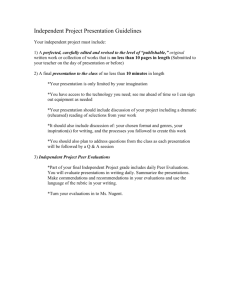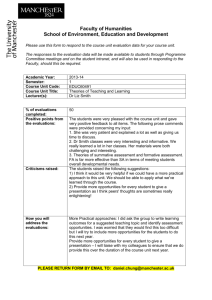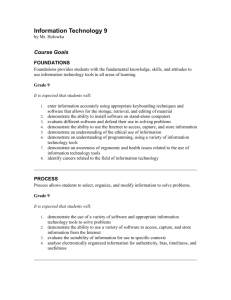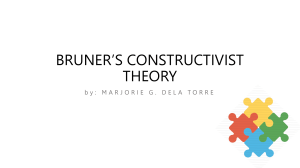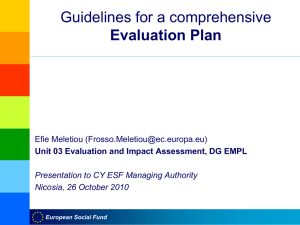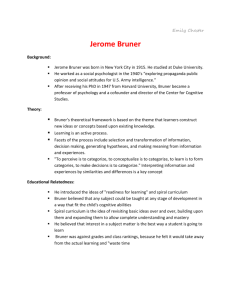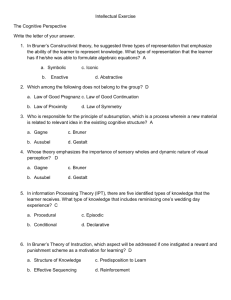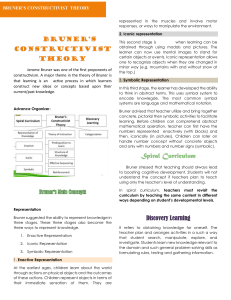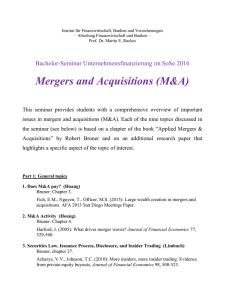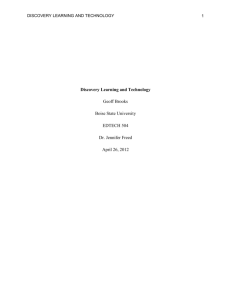Pros and Cons of Evaluation
advertisement
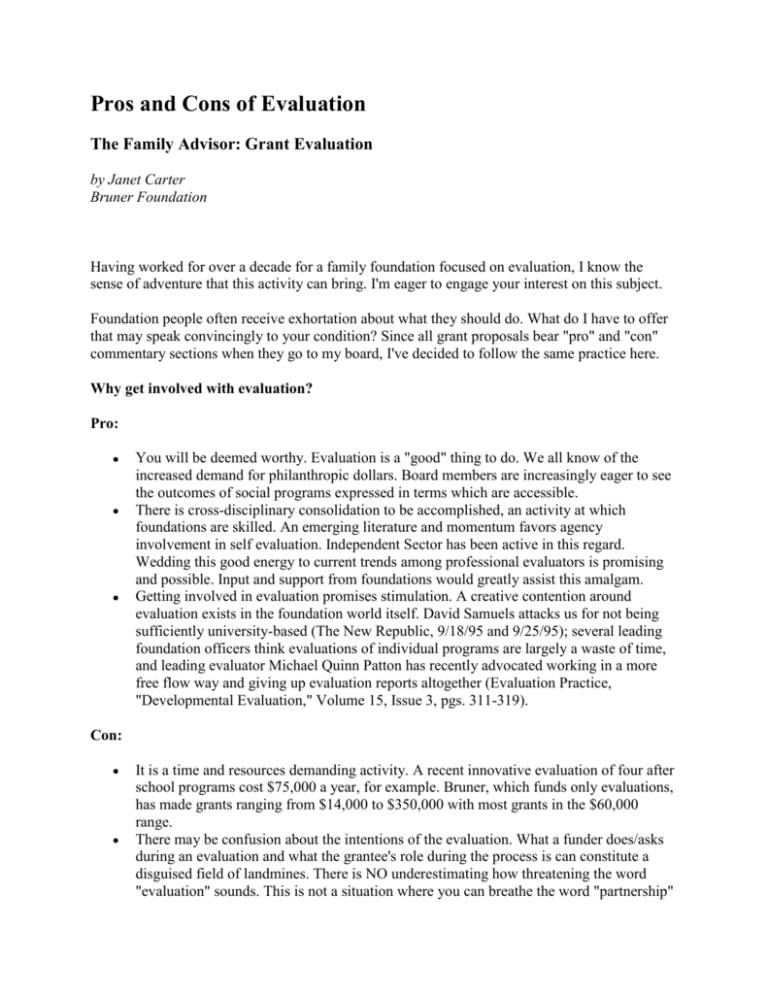
Pros and Cons of Evaluation The Family Advisor: Grant Evaluation by Janet Carter Bruner Foundation Having worked for over a decade for a family foundation focused on evaluation, I know the sense of adventure that this activity can bring. I'm eager to engage your interest on this subject. Foundation people often receive exhortation about what they should do. What do I have to offer that may speak convincingly to your condition? Since all grant proposals bear "pro" and "con" commentary sections when they go to my board, I've decided to follow the same practice here. Why get involved with evaluation? Pro: You will be deemed worthy. Evaluation is a "good" thing to do. We all know of the increased demand for philanthropic dollars. Board members are increasingly eager to see the outcomes of social programs expressed in terms which are accessible. There is cross-disciplinary consolidation to be accomplished, an activity at which foundations are skilled. An emerging literature and momentum favors agency involvement in self evaluation. Independent Sector has been active in this regard. Wedding this good energy to current trends among professional evaluators is promising and possible. Input and support from foundations would greatly assist this amalgam. Getting involved in evaluation promises stimulation. A creative contention around evaluation exists in the foundation world itself. David Samuels attacks us for not being sufficiently university-based (The New Republic, 9/18/95 and 9/25/95); several leading foundation officers think evaluations of individual programs are largely a waste of time, and leading evaluator Michael Quinn Patton has recently advocated working in a more free flow way and giving up evaluation reports altogether (Evaluation Practice, "Developmental Evaluation," Volume 15, Issue 3, pgs. 311-319). Con: It is a time and resources demanding activity. A recent innovative evaluation of four after school programs cost $75,000 a year, for example. Bruner, which funds only evaluations, has made grants ranging from $14,000 to $350,000 with most grants in the $60,000 range. There may be confusion about the intentions of the evaluation. What a funder does/asks during an evaluation and what the grantee's role during the process is can constitute a disguised field of landmines. There is NO underestimating how threatening the word "evaluation" sounds. This is not a situation where you can breathe the word "partnership" several times and then be done with it. It will take all your powers of listening and reflecting to hone a workable evaluative relationship. Suggestions: One of the most helpful things that I've learned about evaluation is captured in ideas by Arnold J. Love, author of several works on internal evaluation. Love points out that most of those engaged in evaluations distribute their efforts during a project as follows: The great bulk of effort is devoted to data collection while substantially less investment is made in planning and analysis/dissemination. However, the desirable distribution, he suggests, would be the reverse: The plan for evaluation should focus on the following: If you can persuade all concerned to allow time to plan the evaluation and later ponder its findings, you will be way ahead. In fact, the effort to create key evaluation questions may be as valuable as the evaluation itself. Do not assume that you or the evaluator automatically knows what these are. Ask the grantee what are the strong and weak characteristics of their program, ask several other individuals who are familiar with the program what they think the program does well and sit down and cogitate about these answers. Ask how they would know they have accomplished what they wish to. Note that what begins to emerge, not uncommonly, are different answers than were presented initially. This fact is not due to duplicity on the part of your grantees. The second question particularly may well produce a blankness of expression-most practitioners have not really thought about it with any degree of freedom or encouragement. The reason being that they have customarily been locked into "we will do a survey," "we will have a focus group" kinds of responses. Don't jump to method too quickly! Have everyone concerned start talking about who they would like to share the results with. Currently I have a proposal before our foundation from a respected advocacy group; they want to tell everyone the results. It is difficult to see that such ambition dilutes what you can accomplish and leads to that curve slope of the bell curve: frantically collecting reams of information which may well not be used. Janet Carter is executive director of the Bruner Foundation in New York City, and founding member and former chair of the Grantmakers Evaluation Network, the affinity group for foundation representatives interested in program evaluation. ©2003 Council on Foundations

